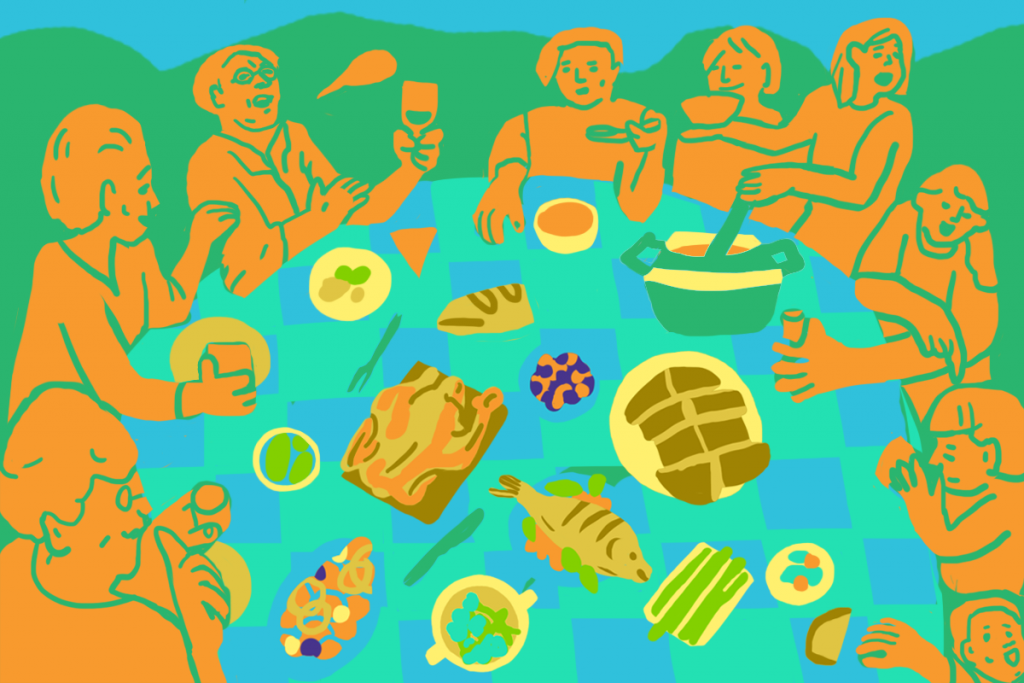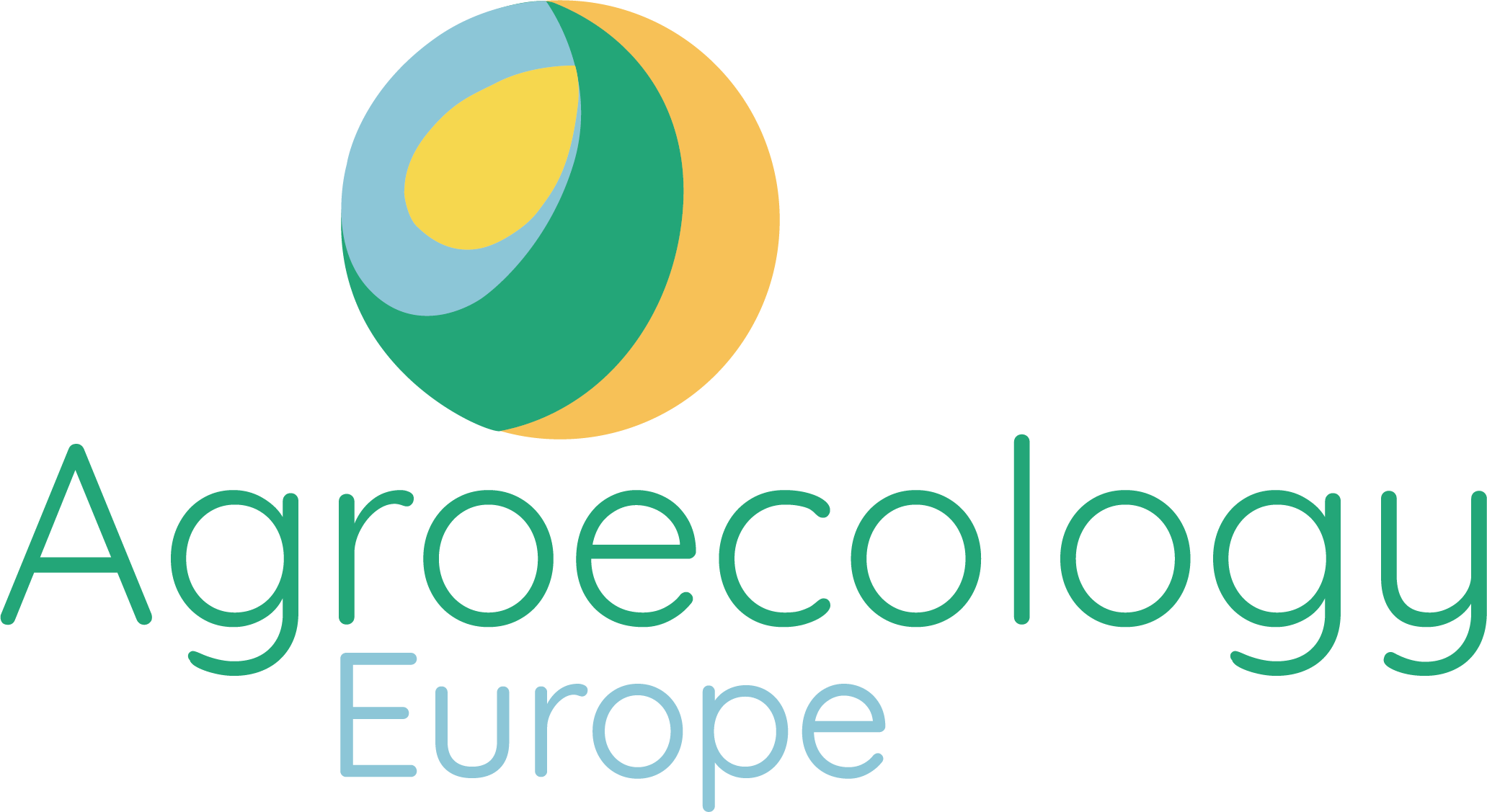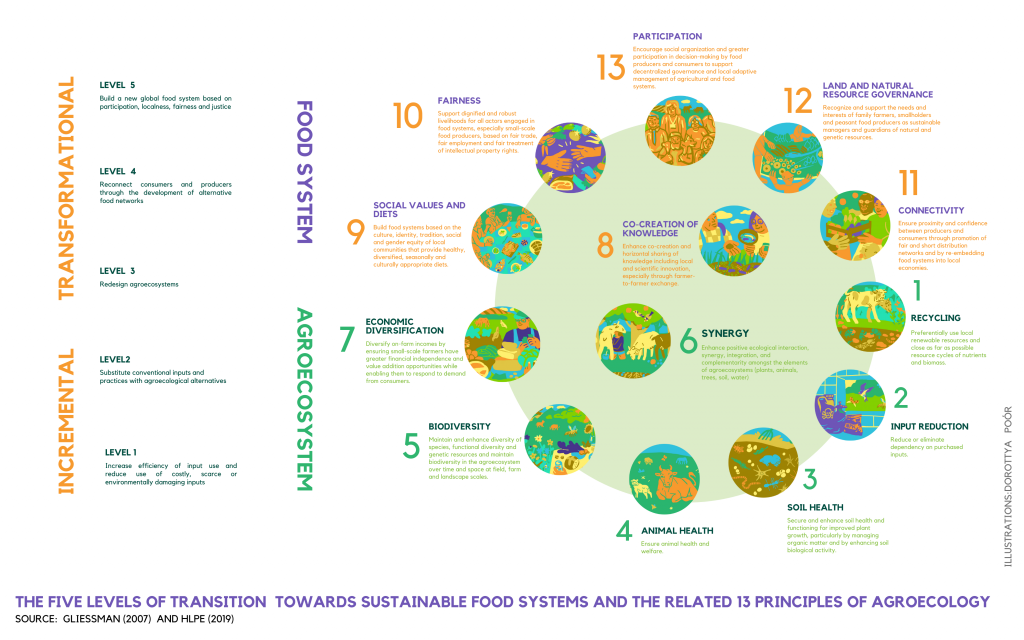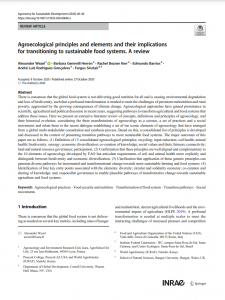Agroecology is a dynamic concept that has gained prominence in scientific, agricultural and political discourse in recent years. It is increasingly promoted as being able to contribute to transforming food systems by applying ecological principles to agriculture and ensuring a regenerative use of natural resources and ecosystem services while also addressing the need for socially equitable food systems within which people can exercise choice over what they eat and how and where it is produced.
Agroecology embraces a science, a set of practices and a social movement and has evolved over recent decades to expand in scope from a focus on fields and farms to encompass whole agriculture and food systems. It now represents a transdisciplinary field that includes all the ecological, sociocultural, technological, economic and political dimensions of food systems, from production to consumption.
Learn more about the 13 principles of agroecology in the paper ‘Agroecological principles and elements and their implications for transitioning to sustainable food systems.
INput reduction
Input reduction refers to using agroecological practices to reduce or eliminate dependency on purchased inputs by carefully planning and managing rich and diverse ecosystems that create synergies between different components of the agricultural system.
This creates more efficient farms that use free natural resources such as solar radiation, atmospheric carbon, nitrogen, biological processes, and that recycle biomass, nutrients and water, which increases the autonomy of the farmer and increases resilience to natural or economic shocks.
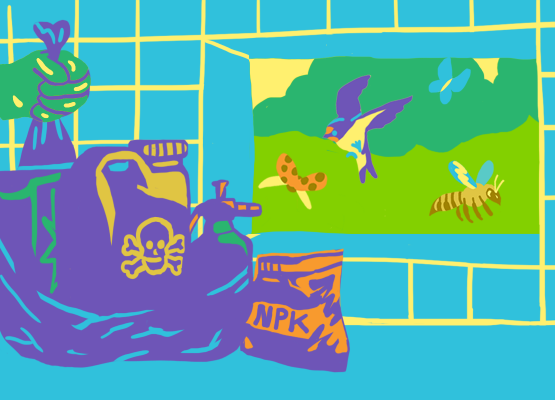
Soil Health
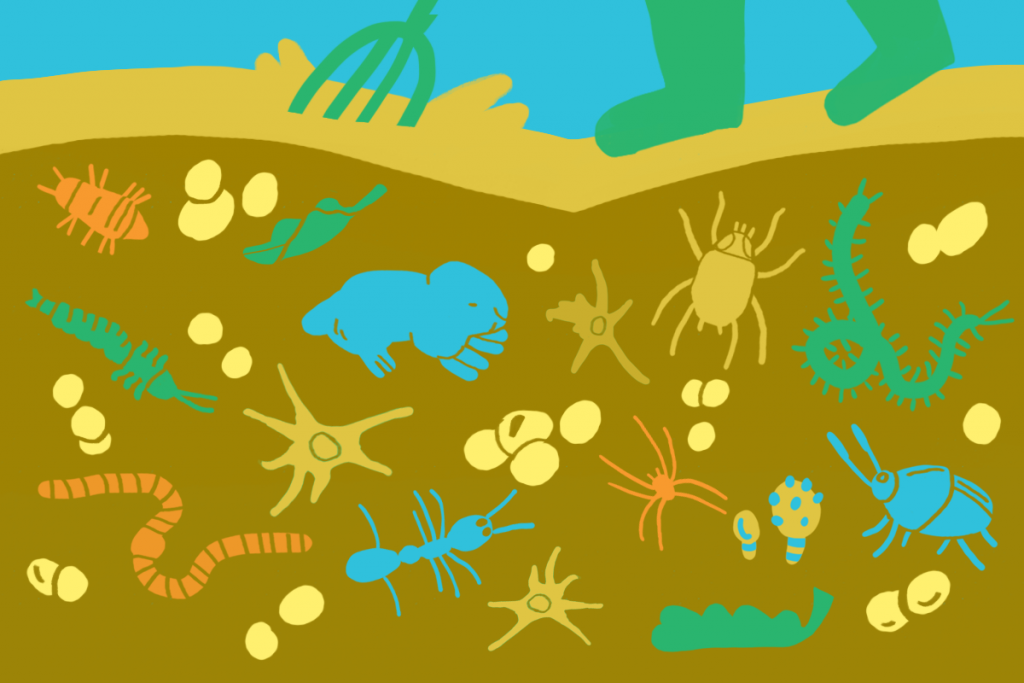
Soils are the foundation of our terrestrial ecosystems and soil health is crucial to global food production.
Why is soil health a fundamental principle of agroecology? What are the threats to soil health in Europe? What are the levers of change to improve soil health in Europe and worldwide? Discover this facinating topic with Marc-André Selosse, botanist and mycologist, professor at the National Museum of Natural History in Paris
animal health and welfare
The negative impact of industrial livestock farming on animal health and welfare, but also on human health, ecosystems and the environment is indisputable and no longer needs to be demonstrated.
Agroecology, on the other hand, makes it possible to reconfigure livestock systems and reintegrate them into agro-ecosystems in order to ensure the well-being and health of animals, humans and ecosystems, and to produce healthy, high-quality food while providing ecosystem services.
Let’s find out in this short video with Caroline Roose, Member of the European Parliament and member of the Animal Welfare Committee of Inquiry, what are the current parliamentary actualities on these issues.
BIODIVERSITY
How can biodiversity be an ally of the agricultural production? and how can agroecology be a cornerstone for the biodiversity maintenance and preservation?
To learn more about agroecology and biodiversity, have a look at this short video and meet inspiring farmers, market gardeners and dairy farmers who place biodiversity at the heart of their production system in the Ain region, where agroecological initiatives are flourishing and the transition is underway.
Between science and practice, this video takes stock of biodiversity in Europe and explores possible transition pathways with Alexander Wezel, director of research at Isara, Lyon and vice-president of Agroecology Europe.
Synergy
Synergy is the essence of agroecology, as it represents the vital ecological interactions between different elements of the agroecosystem in both time and space.
Instead of focusing on external inputs and specialisation, it relies on the interactions between plants, animals, trees, soil and water to create a system that imitates and reinforces the complexity of nature in order to mitigate climate change, create economic diversity and enhance biodiversity.
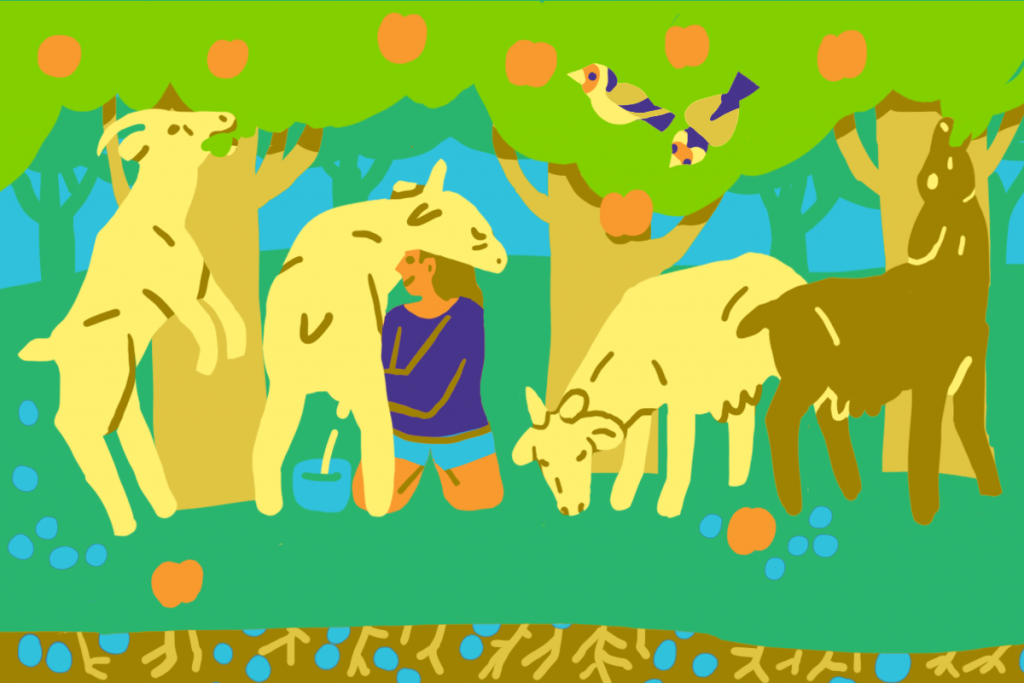
Economic diversification
Diversifying on-farm incomes insures greater financial independence and value addition opportunities and enable farmers to respond to demand from consumers.
In this short video interview with Olivier Lefebvre, economist and co-founder of Perma-projects, let’s discover how economic diversification strengthens ecological and socio-economic resilience of farmers and farming systems in Europe.
SOCIAL VALUES AND DIETS
One of agroecology’s core principle consists in “building food systems based on the culture, identity, tradition, social and gender equity of local communities that provide healthy, diversified, seasonally and culturally appropriate diets” (HLPE, 2019).
On the occasion of the Month of Agroecology, have a look at Les Levidow’s article highlighting the many social benefits of agroecology in terms of rural livelihoods, fair prices, socio-economic equity, etc. These successful experiences from Brazil can inform European strategies.
“Agroecology’s societal benefits depend on solidaristic relationships: some experiences from Brazil”
by Les Levidow, Open University London and Davis Sansolo and Monica Schiavinatto, Universidade Estadual Paulista (UNESP), São Paolo.
